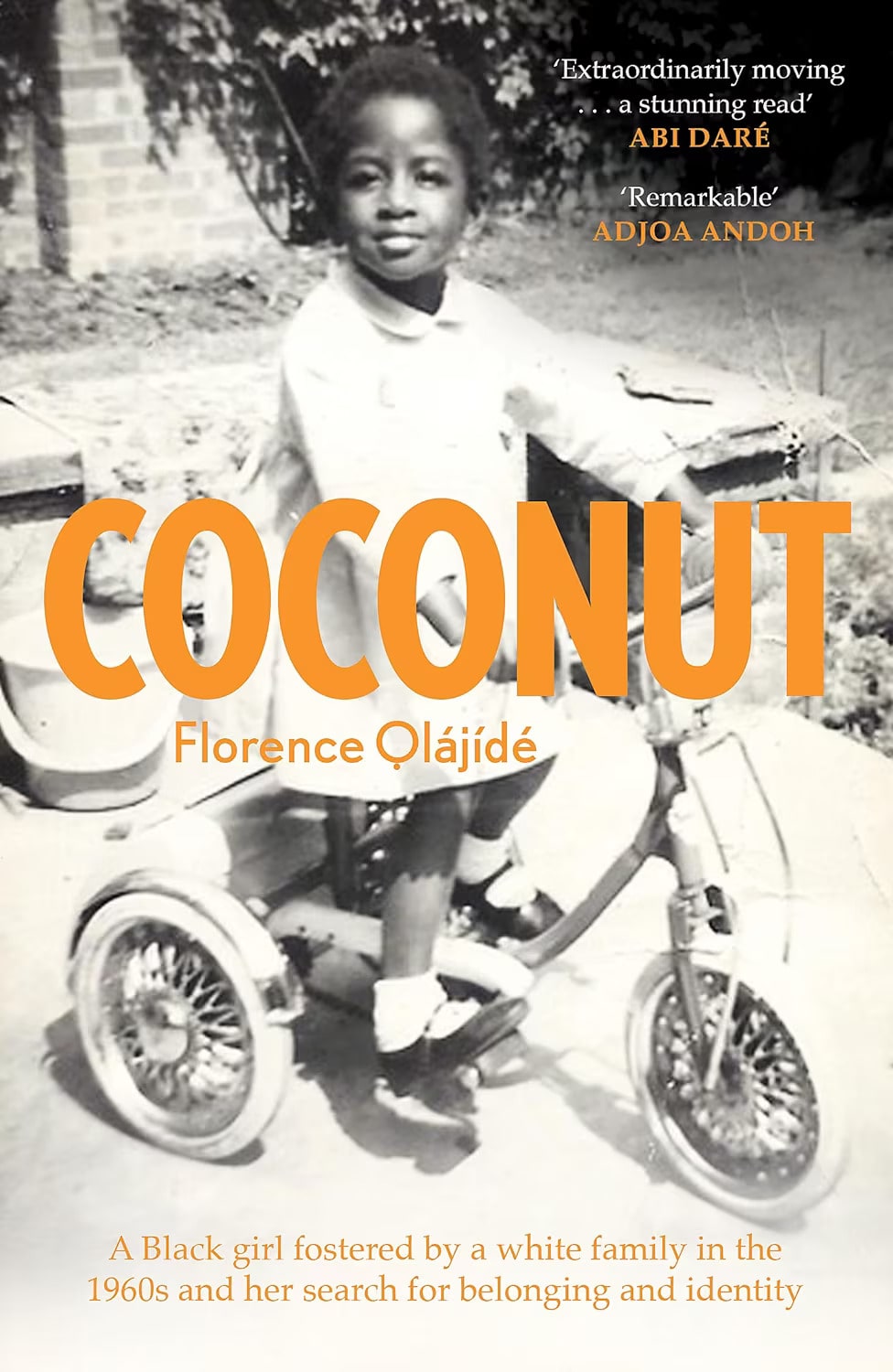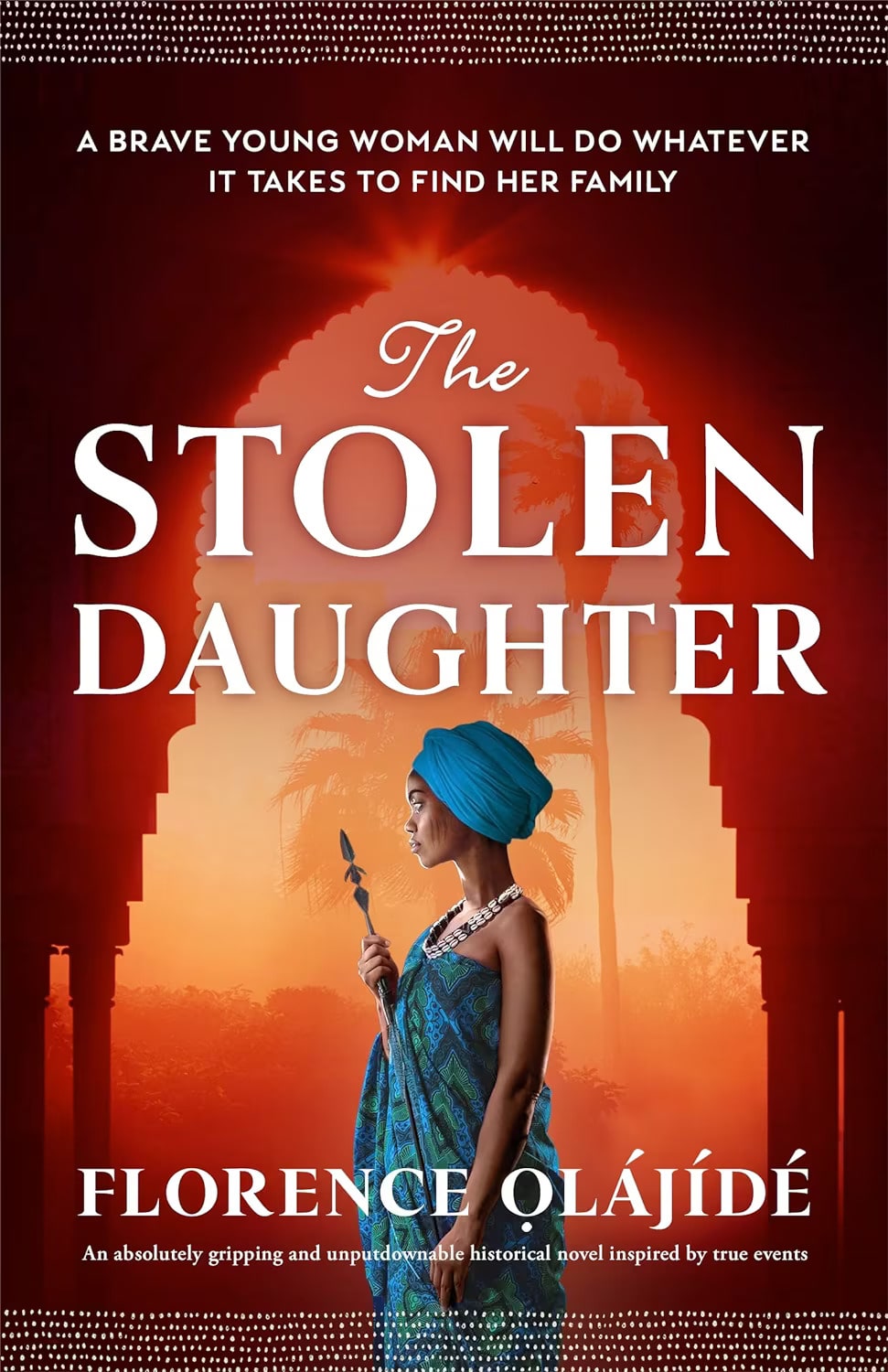Coconut

‘Why am I not white like everybody else?’ Nan came and sat on the edge of my bed. ‘What do you mean?’ A tender finger brushed against my cheek. ‘Well, everyone in this house is white. Why am I Black?’
A generation of Nigerian children were born in Britain in the fifties and sixties, privately fostered by white families, then taken to Nigeria by their parents.
Coconut is the story of one of those children.
1963, North London. Nan fosters one-year-old Florence Ọlájídé and calls her ‘Ann.’ Florence adores her foster mother more than anything but Nan, and the children around her, all have white skin and she can’t help but feel different. Then, four years later, after a weekend visit to her birth parents, Florence never returns to Nan. Two months after, sandwiched between her mother and father plus her three siblings, six-year-old Florence steps off a ship in Lagos to the fierce heat of the African sun.
Swapping the lovely, comfortable bed in her room at Nan’s for a mat on the floor of the living room in her new home, Florence finds herself struggling to adjust. She wants to embrace her cultural heritage but doesn’t speak Yoruba and knows nothing of the customs. Clashes with her grandmother, Mama, the matriarch of the family, result in frequent beatings. Torn between her early childhood experiences and the expectations of her African culture, she begins to question who she is. Nigerian, British, both?
Florence’s story is an unputdownable tale of loss and loneliness, surviving poverty, maltreatment and fighting to get an education. Most of all, it’s a moving, uplifting and inspiring account of one woman’s self-determination to discover who she is and find her way to a place she can call home. Perfect for fans of Lemn Sissay’s My Name is Why and Tara Westover’s Educated.


